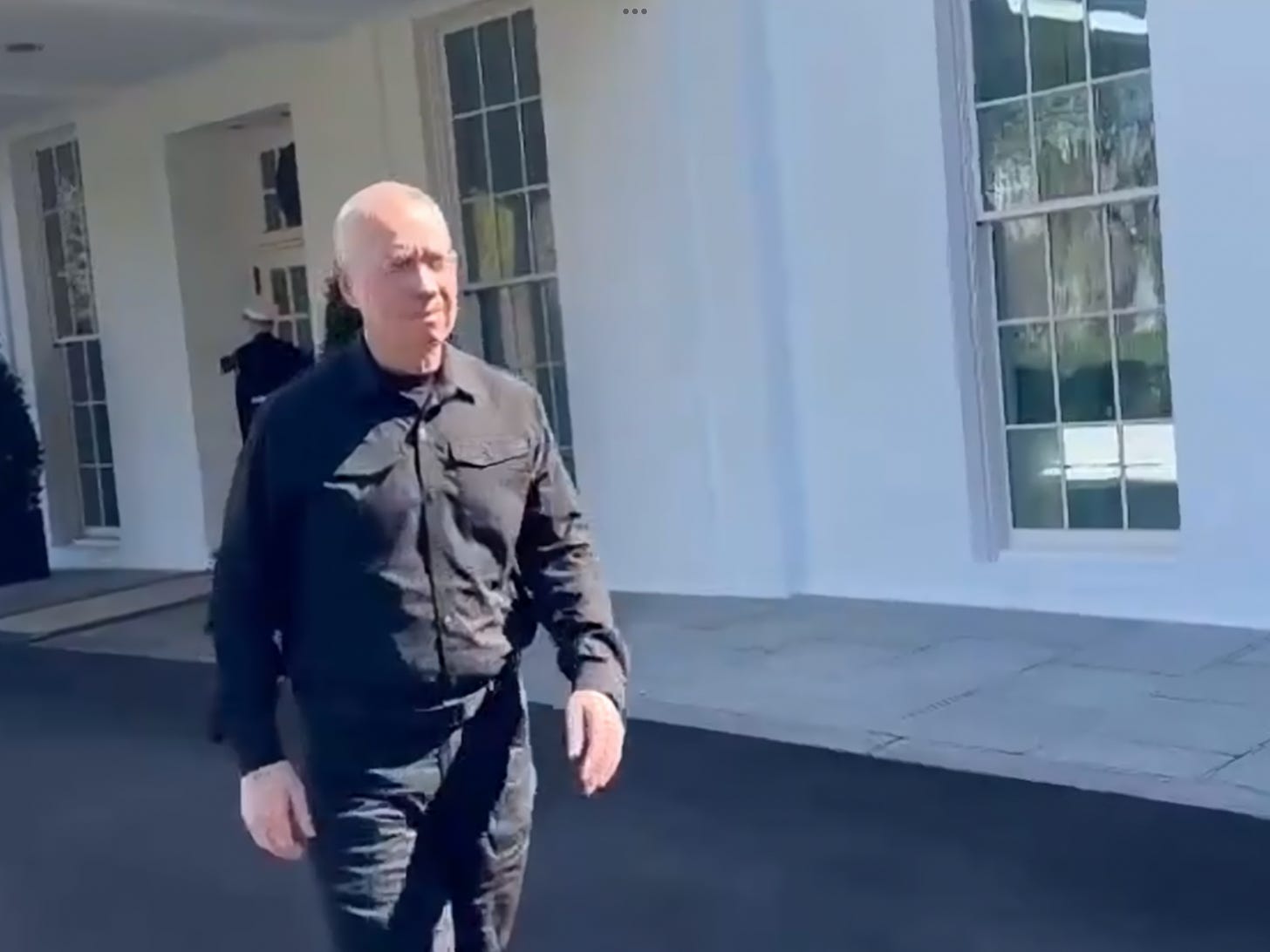White House says Bibi picking a fight
“We get to decide what our policy is,” National Security Council spokesman John Kirby said. “It seems like the PM Office is choosing to create a perception of daylight here.”

The White House suggested that Israeli Prime Minister Benjamin Netanyahu chose to hysterically overreact to a U.S. abstention today on a UN Security Council resolution that calls for a pause in fighting in Gaza during Ramadan as well as for the unconditional release of Israeli hostages held by Hamas. Netanyahu in response abruptly canceled the planned visit of two top advisors to Washington this week to discuss alternative options than a ground invasion for targeting Hamas battalions in the southern Gazan city of Rafah.
The White House said the Israeli Prime Minister distorted the U.S. position, publicly interpreting it as a change in U.S. policy, contrary to U.S. pronouncements; and serving in effect only to highlight Israel’s international isolation six months into its war against Hamas.
“We get to decide what our policy is,” National Security Council spokesman John Kirby told journalists at the White House briefing today (March 25).
“The Prime Minister’s Office seems to be indicating through public statements that we somehow changed here,” Kirby said. “We haven’t.”
“It seems like the Prime Minister’s Office is choosing to create a perception of daylight here, when they don’t need to do that,” he said.
Netanyahu: U.S. ‘abandoned’ Israel at UN
“The United States has abandoned its policy in the UN today,” Netanyahu said in a statement. “Regrettably, the United States did not veto the new resolution, which calls for a ceasefire that is not contingent on the release of hostages.”
“This constitutes a clear departure from the consistent US position in the Security Council since the beginning of the war,” Netanyahu insisted.
“That’s just not true,” Kirby said at the White House briefing. “Nothing could be further from the truth. … We still have Israel’s back.”
Publicly, the White House expressed disappointment at the decision by Netanyahu to cancel the visit of Strategic Affairs Minister Ron Dermer and National Security Advisor Tzachi Hanegbi, who were due to arrive in DC tonight and hold meetings with US counterparts at the White House Tuesday and Wednesday on U.S. thinking on alternative ways of reaching Israeli objectives in Rafah than a ground invasion.
But, the White House said, Rafah would be discussed in previously-planned meetings that Israeli Defense Minister Yoav Gallant was due to hold with National Security Advisor Jake Sullivan today, as well as with US Secretary of State Antony Blinken at the State Department this afternoon, and with US Defense Secretary Lloyd Austin at the Pentagon tomorrow.
“As you and I are speaking, we are still providing tools and capabilities, weapons systems, so that Israel can defend itself against…a viable threat,” Kirby said.
“The Defense Minister is here as we speak just in the other room,” Kirby noted. “We all recognize how important it is that Israel still be able to defend itself. At the same time, making sure that the humanitarian assistance is getting in, and civilian casualties come down. And we get those hostages out.”
Asked if the U.S. would consider withholding or conditioning weapons transfers to Israel following Israel canceling the Dermer/Hanegbi visit to discuss Rafah, Kirby said he wouldn’t discuss a hypothetical.
“I’m not going to get into hypotheticals and speculate about that one way or the other,” he said.
What might Netanyahu hope to get out of his performative hysteria?
“He can blame Biden for his failures,” said Alon Pinkas, a Haaretz commentator and former Israeli consul general. “He set the course already in November.”
“There should be no doubt,” former U.S. Ambassador to Israel Martin Indyk tweeted on the U.S. abstention on the UN Security Council resolution today. “The U.S. is signaling Bibi that his house is on fire and he should not take the U.S. for granted.”
**


